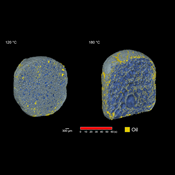


The Intrafood:24 seminar programme covers two current topics: ‘Applying AI in product development’ and ‘Contemporary, healthy nutritional concepts with sustainable natural ingredients’, explains Professor Koen Dewettinck (Ghent University) at this edition of the Intrafood fair to be held on 25 and 26 September 2024.
The seminars offer the visitors the chance to find out more on both current trends and to pick up state-of-the-art information on specialist and scientific themes. “In the food industry, Artificial Intelligence can have a major impact on product development”, says Koen Dewettinck, who wholeheartedly welcomes the prospect. “I have been involved in scientific research for more than 30 years and I am aware how complex developing products in the food industry is. Not all product developers realise this, and still see product development far too often as an entirely empirical process of trial-and-error. That is not the case. For example, AI can help with the replacement or omission of certain ingredients such as additives. This way the reformulation of products and the development of new products which have to comply with specific requirements can be managed far better.”
AI in product development
Dewettinck sees a range of possible applications for AI. “I think first of all of the processing of large quantities of product data which are available in a business but often left unused, while much information can be drawn from this data achieved using AI software which could detect patterns and links.” He feels this could lead to significant conclusions for product development concerning functionality, flavour, texture and so on.
AI in the optimisation of production process
As well as AI and product development, AI can also give insights into the impact of process parameters of a production line on product characteristics. “Currently, here again the trial-and-error principle is far too often applied. In short, we tweak the knobs on the machines and look to see if the quality of the product is any better. But this way you don’t really know what you are doing. Here AI can certainly be useful in optimising the complete process by performing it in an expert goal-oriented manner.”

Contemporary, healthy nutritional concepts and sustainable ingredients
The theme of ‘Contemporary, healthy nutritional concepts with sustainable natural ingredients’ may seem more conventional, but it is no less important for that and speaks for itself, notes Dewettinck. Centre stage is the development of sustainable, healthy and tasty products. “My ‘Food Structure and Function’ research group has been looking at this topic for over 25 years. So it is nothing new, but it is nonetheless more important than ever.” He brings up an example from the world of chocolate. “The price of cocoa recently rose to $10,000 per ton, while the going rate had previously stood at around $3000. This shows that we are facing enormous challenges from climate change with the result that some raw materials from certain countries will be much more expensive. Companies will therefore need to seek alternative raw materials which have a lower CO2 footprint and lower water consumption.” Product flavours need to be compromised as little as possible, finishes Dewettinck. “A product can be perfectly healthy and sustainable, but the consumer won’t buy it (or not again) if the flavour isn’t right.”
www.intrafood.be/en/discover-intrafood/seminars-2024

“It is always advisable to maintain a critical perspective on your own products and adjust them to contemporary needs where necessary”, emphasises Marijke Adriaens, CEO of frozen food company Fribona. “For consumers, taste is still the main consideration. It is essential to work towards a product that is, above all, tasty and visually appealing.”...

Scientists from KU Leuven have discovered how oil penetrates snacks during and after the frying process. Recent research findings point to advanced frying techniques that reduce oil absorption, as well as innovative methods to limit oil uptake during the cooling phase. This paves the way for the development of healthier snacks without compromising...

Food companies are increasingly targeting a wider range of consumer groups. Speaking at an event organised by Fenavian, Julian Mellentin of New Nutrition Business said this strategy offers significant opportunities to respond to the diverse health needs and interests of today’s consumers. “Consumers enjoy both animal and plant-based proteins”, he...

Backed by financial partners, Start it @KBC is launching the accelerator programme Scale it Agro, aimed at scale-ups offering sustainable and innovative agricultural solutions for agriculture and horticulture businesses. Kjell Clarysse, programme director at Scale it Agro, goes into more detail.